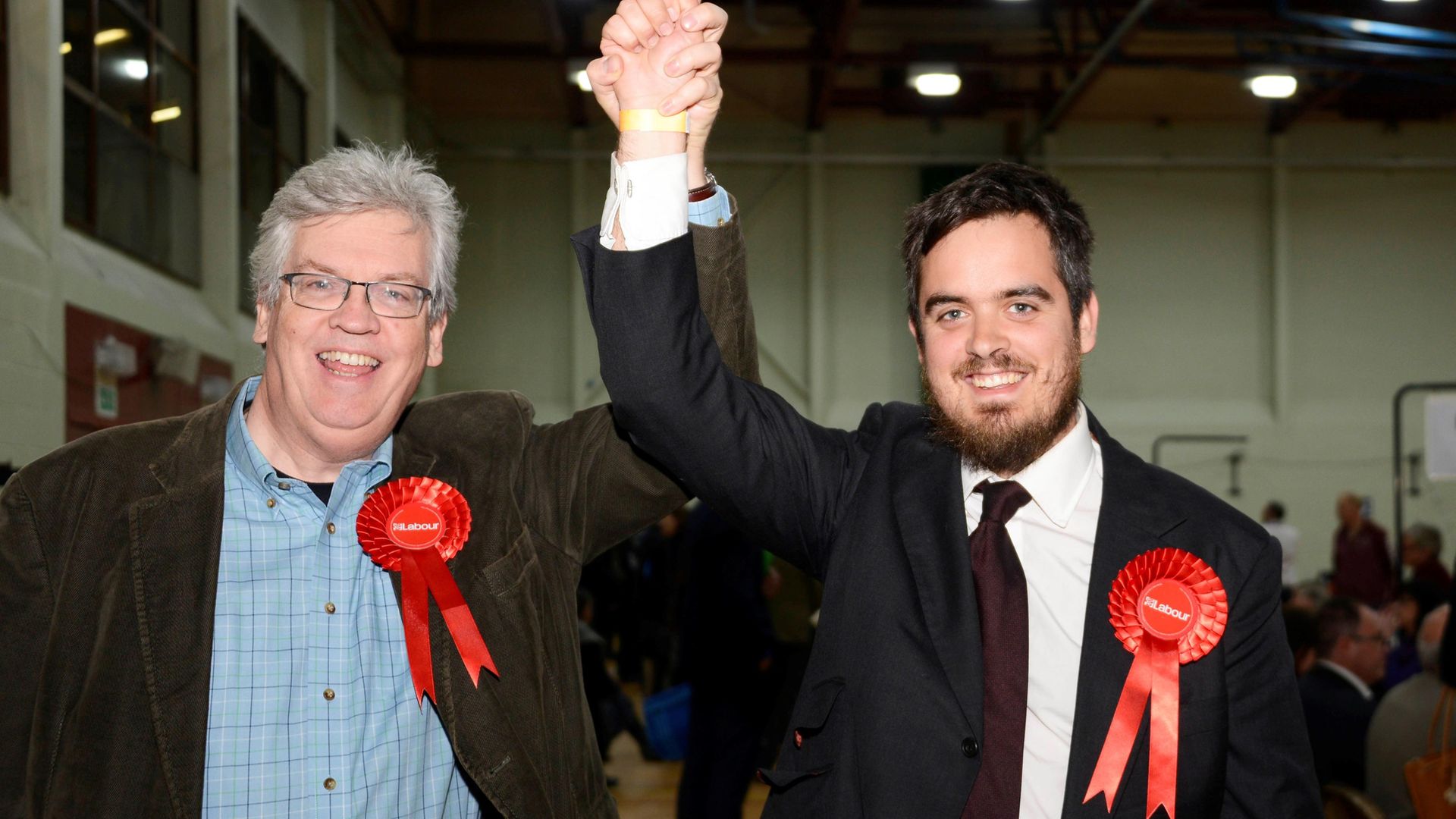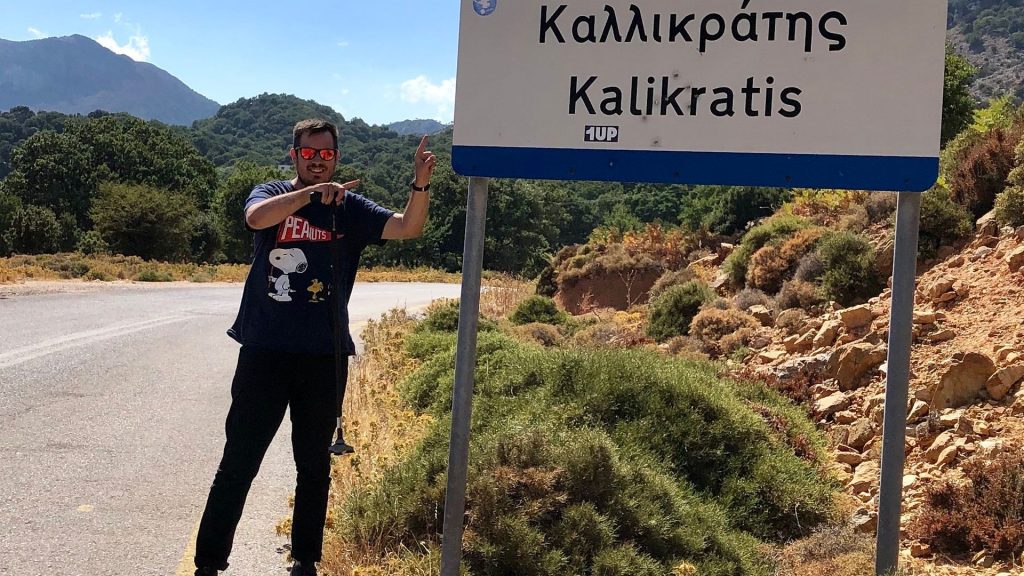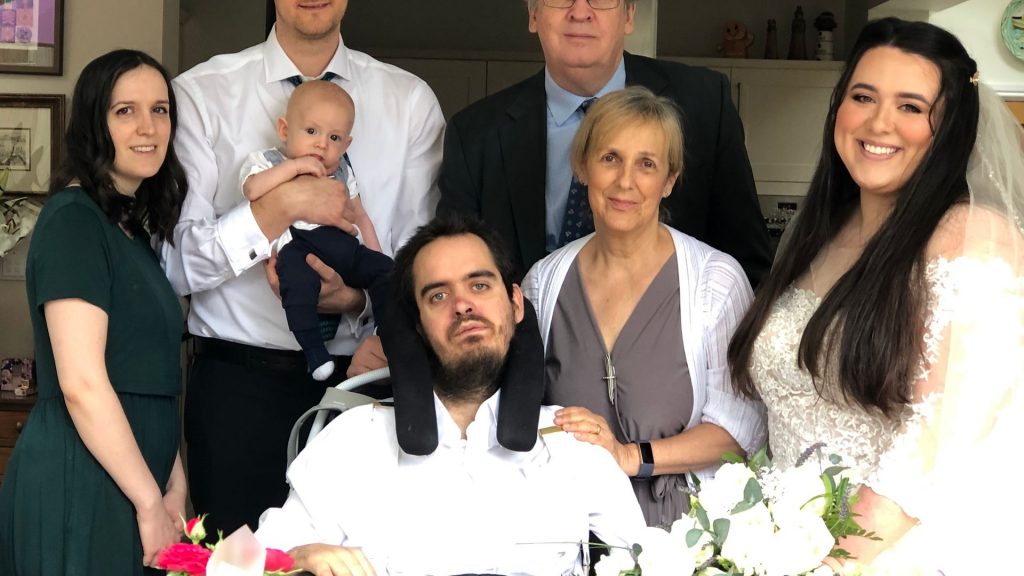
DAVID WARD writes with pain pride after his son Alex entered office with a terminal illness.
Just before noon on Friday May 3, 2019, my phone rang. It was my son Alex: “I’ve only gone and bloody done it” he told me. He had just been elected as a councillor in Ashford in Kent.
Four years earlier he had lost a council election bid and to avoid sharing another possible father and son disappointment I had been banned from going to the count. But once his victory was confirmed I was joyfully summoned to Ashford Town Hall to celebrate his long-held ambition to hold elected office.
You could say that Alex gained a passion for politics with his mother’s milk. When he was born in 1989 both his parents worked for the Labour Party. I was a policy adviser to then shadow chancellor and future leader John Smith, and his mother Emma MacLennan was a specialist in the party’s Policy Directorate.
As a toddler he would often visit the leader of the opposition’s office in the House of Commons, and parliamentary staff from the police at the entrance to counter staff in the canteens greeted Alex and fussed over him.
In 1994, just five years old, like his parents, he was very upset by John Smith’s premature death, which had an enormous impact on all of our lives.
These early experiences must have made a deep impression on Alex. As he grew up, he identified more and more with Smith’s widely admired commitment to social justice and public service.
Despite living in the ‘safe’ Conservative constituency of Ashford, Alex was a dedicated campaigner, always friendly and polite on the doorstep as he devoted countless hours to street by street campaigning.
Emma and I were immensely proud of Alex’s achievement. Winning a council seat at the second attempt in such a Tory area gave him the chance to serve his community and perhaps build a career in politics. He was born into politics, and he had got the bug.
But just a few weeks later, all thoughts about his political future turned to concern that he would have a future at all.
A terminal illness for which there is currently no cure, MND – Motor Neurone Disease – attacks nerves in the brain and spinal cord. The damaged motor nerves block messages from the brain causing muscle wasting and paralysis, eventually resulting in respiratory failure. Life expectancy for those suffering MND is brutally short, with death occurring for 30% of victims in one year and for 50% within two years.
The first signs of trouble began in June 2019. Alex suffered a few falls when his right leg suddenly gave way. We assumed it was just a physical injury that would heal with some rest and recuperation.

He joined us on holiday in Crete, which has long been a special place for our family. Emma’s mother was born on the island and it was also where Alex met the love of his life, the wonderful Elizabeth Mylonogianni.
We stayed over a month in Chania, hoping that Alex’s walking difficulties would be eased by swimming and the warmth of the Mediterranean sun. But there was no improvement.
Back in the UK, in the autumn Alex began months of medical examinations. With the help of a walking frame, he enthusiastically took up his council duties. But we all shared a growing anxiety about what was wrong with him. Numerous investigations and a week at the Kent and Canterbury Hospital failed to deliver a diagnosis.
By the end of the year there was still no improvement and in January things took a turn for the worse. His neck muscles were noticeably weaker and his ability to walk was even more restricted.
He could no longer manage the stairs to his fourth floor flat and began using a wheelchair. He and Elizabeth moved
into our nearby home in Tenterden, Using our living room as their new bedroom.
We were coming to terms with the idea that Alex would be permanently disabled.
Characteristically, he began thinking how this might give him a new perspective as a champion for accessibility and inclusion on Ashford Council.

Another spell in hospital led to more tests and for the first time a doctor confirmed that they could not rule out MND.
I will never forget the look of dread in Alex’s eyes the moment the abbreviation MND was spoken. We all knew what it meant. As any parent would, we tried to reassure him that this was a remote possibility but inside was stirring a worry bordering on despair.
Final diagnosis now depended on DNA testing and we would have to wait and distract ourselves as best we could.
Both Emma and I work in road safety: Emma running projects in Eastern Europe and Central Asia and I managing a global consumer testing programme for vehicle safety. Alex helped us with this work and was very active in an international effort to establish a new United Nations target to halve road deaths by 2030.
He had attended UN working groups on these issues and together we were expecting to attend a global ministerial conference on road safety hosted by the Swedish government in Stockholm on February 19-20. Unfortunately, Alex could not now attend and missed witnessing the ministers adopt the 2030 target he had worked so hard for.
And what bitter irony, that on the closing day of the Stockholm conference Alex and Elizabeth went to King’s Hospital in London to receive the results of his DNA test. MND was confirmed along with our worst possible fears.
A further teleconference with King’s one week later revealed that Alex had a very aggressive form of the disease. There was no prospect of him living into his seventies as was the case with Professor Stephen Hawking.
His condition quickly began to worsen. His upper arm strength deteriorated, his speech grew hoarse, the neck-drop more severe.
Suddenly we entered a new world of technology and NHS support. Devices arrived to help Alex stand up, followed by a motorised wheelchair, and eventually a full body hoist bolted into the ceiling of our former living room. He was also supplied with a machine to assist his breathing.
Before diagnosis Alex had a natural tendency to downplay his symptoms and even suggest that he was getting better. With MND confirmed these hopes were shattered. Although there was no chance of recovery, Alex was initially reluctant to use the technology now occupying every available space in our home. Each device represented a further concession to the disease.
Worst of all was his gradual loss of speech. Alex was a chatterbox, with a great sense of humour, and always ready with a wry observation on all our many activities and shared interests. Not to be able to speak was a torture for him and agony for us.
He could not easily tell us of his most simple needs or share his anxieties or desires. He tried using an eye activated artificial voice, but it was difficult to calibrate.
Simpler predictive alphabet boards were quicker, and his partner Elizabeth became an uncanny expert in grasping what he was trying to say.
Alex’s bravery in facing the torments of MND was astonishing. There were tears and frustration but extraordinary strength and fortitude. He was still capable of moments of joy and jokes. For example, playing with his speaking device he selected a Greek accent and asked me how I liked his new voice.
In March my daughter Katy and her husband Matic celebrated the birth of a beautiful baby boy, named Luca Alexander in his uncle’s honour. As Covid restrictions eased they were able to visit, and Alex spent many hours with his new nephew – his face lit up with smiles and gleaming eyes.
There was also another major event – his wedding to Elizabeth, originally planned to take place with hordes of family and friends in Crete. Instead the bride and groom exchanged their vows at a ceremony held in our house on July 6 with close relatives participating via Zoom. It was an indescribably beautiful and moving occasion celebrating their 10 years together. But tinged with so much sadness that we knew, we all knew, the marriage, no matter how loving, would be short.
To escape the tortures of speechless paraplegia Alex watched classic films, and just about everything ever produced by Monty Python. He continued to participate in virtual council meetings, followed politics as avidly as ever and was very pleased by Keir Starmer’s election as leader of the Labour Party.
Together we participated in virtual quiz nights hosted by our local MND Association – winning at our first attempt largely due to Alex correctly answering questions using his predictive text board. But there was no avoiding subjects that any parent would dread having to ask their child; approving a ‘do not resuscitate’ form and deciding on burial wishes. All agreed through tearful eye contact and nods.
The only way to cope with these agonies was to live in the moment and focus on Alex’s immediate needs: the routine of getting him in and out of bed, washed, moved to our kitchen/dining room. Elizabeth was an unbelievable tower of strength for him 24/7. Emma spent hours each day exercising Alex’s arms, and our two pet terriers also devotedly attended to him. A wonderful pair of carers who visited four mornings a week also became part of our extended family.
By mid-July Alex’s condition worsened. Breathing support was needed for 24 hours and it was harder for him to swallow. He was losing weight fast, and the muscles in his sturdy legs – that eight times had helped him hike down Crete’s Samarian gorge – were atrophying.
Although as mentally sharp as ever, aside from his determination to follow council business, he seemed to lose interest in the wider world. He began watching Disney classics from his childhood that I found too heart-breaking to watch with him. His time was running out.
A last attempt to delay the inevitable would be an operation to fit a feeding tube directly into his stomach. Alex was booked into hospital one last time. The fear in his eyes as the ambulance took him from us still haunts both Emma and me. Elizabeth was allowed to accompany him. But shortly before midnight, the phone rang. “Come quickly,” she said. “He’s not doing well.”
His respiratory system was failing, and his blood pressure was dropping. He was too weak for surgery. Early the following morning – July 22 – he passed away peacefully surrounded by his family. He was just 31 years old.
Losing a child is any parent’s worst nightmare. Every time I hear president-elect Joe Biden mention his deceased son Beau, I see the pride and the pain that I feel, every time I think of Alex, which is every day, every hour. To lose Alex to such a horrendous disease was a nightmare I had hoped, safely into my 60s, that I would never have to face. The inability to protect Alex from MND provoked sensations of vertiginous nausea, despair, and impotence.
Both Emma and I would have given anything we had to have been able to swap places with him. MND destroyed my son’s body, his future and all our shared lives together. But it didn’t succeed in destroying everything. Alex knew how much his family loved him and how proud we were of him. Our shared love is his greatest legacy and our only consolation for his loss.
Love was also the best treatment we could provide for Alex’s ordeal with MND. We will never get him back. But we want to do all we can to help others be spared what he and we had to go through. One in 300 people will develop MND in their lifetime. That’s a lot of people, a lot of families who will suffer. Hopefully soon breakthroughs in gene therapy research will find a cure.
World experts at the MND Care and Research Centre at King’s College London are increasingly confident that effective treatments will be found. It is shocking, however, that in the UK charities provide a greater share of funding for MND research than the government. That has to change, and I am determined to play my part in bringing about that change.
My and Emma’s skills and experience are in politics, policy and campaigns. The best way we can honour Alex’s life and death is to do what we can to fight for the funding and the research to help find a cure. That is why, for example, we are currently helping King’s raise funds for clinical trials.
There are already some formidable voices telling their stories to make sure MND is understood, and takes its place among the diseases governments and societies must take seriously. Former rugby union international Doddie Weir, rugby league star Rob Burrows, ex-footballers Lenny Johnrose and Stephen Darby have all served to underline the horrible truth of this illness – it can strike the strongest and the fittest among us. They are all using the time they have left to fight for others. I will use the time I have left to fight for others too, in memory of a son whose all too short life was defined by courage and love.
To find out more, visit alexwardfund.org/alex-ward to see a short film about Alex and to donate to help find a cure for MND; the Alex Ward Fund target is to raise £250,000 for the King’s College Centre for MND Care & Research in partnership with the My Name’5 Doddie Foundation.








